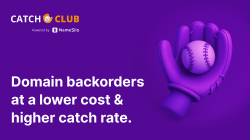I feel it never hurts to get the Sitemap in there, however many pages the site has. Also, with regards to adwords I find my sites generally rank better when using adwords. If anything, new pages are indexed more quickly.
The steps I use are as follows:
1) Ensure site/new page follows a good logical structure (i.e. CSS/style.css; images/generic/image1.png; products/category1/product1.php etc). Also good to use a descriptive file name e.g. red-parker-pen.php. Many argue that using '-' is better than '_', and vice versa, to seperate words in file names! My experience suggests using '-' is better than '_'. Any opinions?
2) Ensure page has good content (for best results regarding a descriptive page use approx 150-300 words of unique descriptive content that is not spammed with keywords).
3) ensure correct use of h1,h2 tags etc. Use correct html tags rather than 'creating them' with CSS. CSS is there to style, not replace! Make sure CSS is in external file.
4) Get the SERPs right first time - devise good META title/descriptions. be specific to the page, not the site as a whole.
5) META keywords - generally considered to have little effect, but surely helps some sites/databases etc so I do it as part of the routine. Choose maybe 10 good and specific keywords.
*Upload Site/Page*
6) Create Sitemap.xml that truly reflects update frequency etc. This is important since in my experience Google et al seem to really appreciate this information.
7) robots.txt
8) submit to webmaster tools etc
9) If selling products then set up a feed in Google Merchant Centre.
10) Site-specific privacy policy.
*Then tinker*
11) Investigate appropriate internal linking structure and use link title tags for more description.
12) As much JavaScript as possible in external files (use as little JavaScript as possible as a rule).
13) use most size effective image file sizes at 72dpi. Only use images where code won't do it.
*Then off-site SEO begins*
14) Social Media and feeds
15) Adwords etc.
16) Blog posts. Do not spam, do not rush! no-follow is just as good as do-follow links! This assumes you are of course playing a long term game where you wish to receive quality traffic rather than make a quick buck!
17) Link Building, but don't go crazy! This is a gradual process and I find it's better to receive links from 10 industry-specific sites than 100 free databases etc.
18) Sign up to review sites if appropriate. After 30 reviews you get the star ratings in Adwords and it instils trust.
I would say don't get all stressed out with low Page Rank scores, if you're getting TARGETED traffic and are ranking well for your keywords who cares how much traffic you receive. I always say it's better to get 50-100 quality hits per day than 1000 that are not of your target market. EDIT: To clarify this point of course traffic volume is important, but targeted traffic is better than masses of irrelevant traffic.
Also, don't stop once done. Regularly add pages and tweak if appropriate to improve quality. It's better to have many pages of quality interlinking content than a few full of information that could be seperated.
This is what has worked for me, but I would certainly love to hear your opinions since approaches vary and although this has worked, I'm sure there are better ways of doing it! Anyway I hope it helps.



















